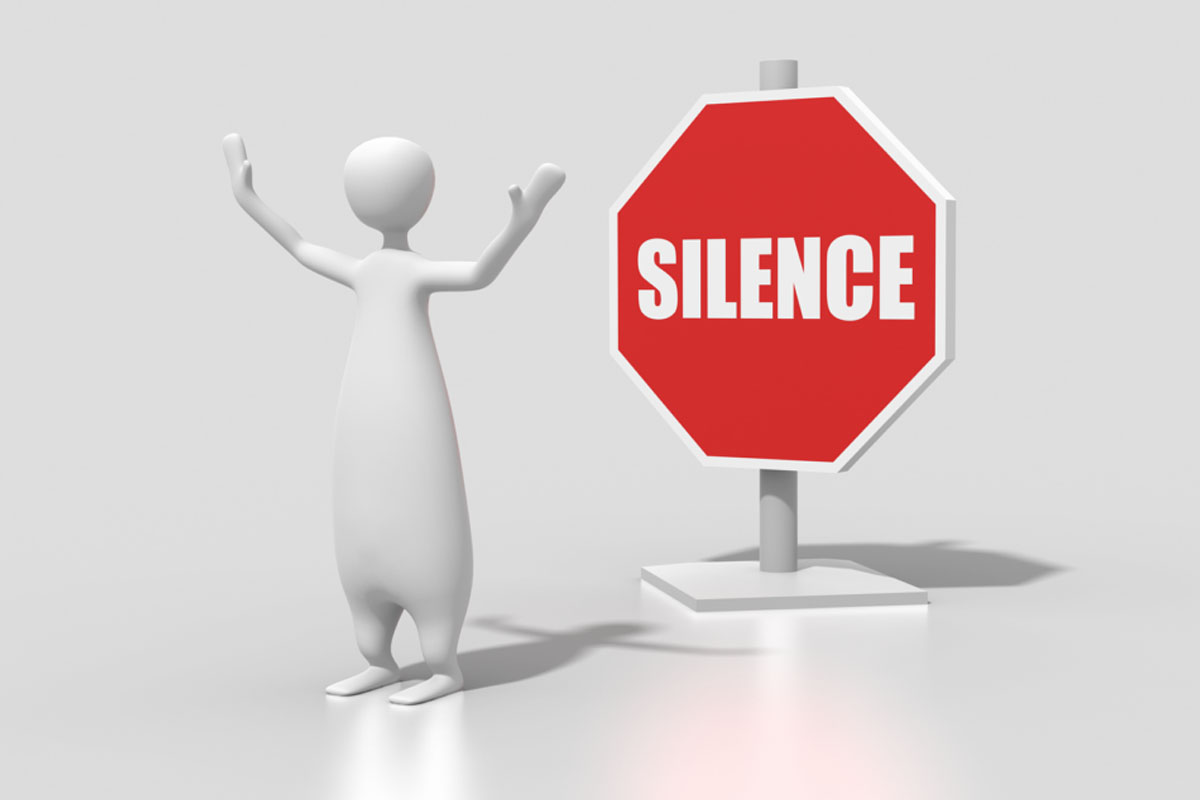A few words from our Troop Leader…
Over the last couple of years, I have contracted COVID on three occasions. Apart from leaving me feeling fatigued and coughing like a 60-a-day smoker, the opportunistic infection of choice has become laryngitis. Some of you may have seen the video I recorded after my first bout of laryngitis, that time using cards to convey my silent message, together with a few hand signals and facial expressions. It went down well at networking events, although it did require a little preparation.
I’m quite vocal. Some would say noisy. So, as you can imagine, losing my voice is a significant drawback for me. Having recently recovered from the third bout of laryngitis, I have decided to share my experience of being quite literally speechless. You may find the tale amusing, possibly enlightening, but I doubt I’ll fully be able to convey the frustration I felt.
- Nobody believes you when you message them, “I’ve lost my voice”.
Many people think it’s a euphemism for being a bit croaky. When they then call you, they’re surprised when you either ditch the call (when you have laryngitis, you’re not even meant to try and whisper as it prolongs the issue) or you do answer the video call and whisper ‘hello’ and then continue with hand gestures and head motions. The ‘conversation’ usually ends up with an awkward “Oh, OK then, well, perhaps give me a call when you can talk?”
- Apparently, being voiceless also means you can’t hear
People speak loudly to you as if it will help you answer them. I’m just going to leave that one there. I can still roll my eyes even without a voice!
- People forget you’re there
When you’re sitting quietly and people have got their heads around the fact you actually can’t speak, they carry on their conversation as if you’re not there. They forget to include you and you literally become invisible. It’s a scary lesson for what life is like for millions of women in countries where they do not experience the freedoms we have here in the UK. It makes you appreciate that we have a say in how we live our lives, in our right to education, our right to work, earn and keep our own money, our right to determine what happens to our bodies, contraception, and terminations. Some countries are sliding backwards in this respect. Anyone who has seen or read The Handmaid’s Tale will have some understanding of where I’m going with this. Losing your voice makes you feel like you’re right there in Gilead.
- Enforced quietness makes you slow down
When you can’t join in a conversation or event, you start to listen better and note more. It’s quite incredible what people will say when they forget you’re listening. It’s also something of a relief to be able to step back and observe; it takes the pressure off.
- Talking for the sake of it
When every word is a major effort to make yourself heard, you evaluate everything you’re thinking and work out what the crux of it is. Is it important enough to warrant the effort? It’s surprising how often the answer is ‘no’. However, when you do have something meaningful to contribute, not being able to do so, and the realisation that no one remembers you’re there and part of the conversation anyway, is a rather isolating experience.
- It’s frustrating
When new clients want to talk to you to discuss their plans, when existing clients want to speak with you about new projects, extensions to plans, changing their plans, adding plans, and so on, it’s really bloody frustrating not to be able to have the conversation! Of course, this happened at the beginning of the year when people are motivated to reinvigorate their marketing plans; it’s a particularly inconvenient time to lose your voice, especially when…. here comes one of my idioms to live by … time kills all deals.
- There are type-to-text apps available
… but they’re a bit pointless. By the time you’ve typed out what you wanted to say, the conversation has moved on. However, it can be handy when trying to ask a one-off question, deliver an instruction, or get someone’s attention. It’s certainly the preferred option for my partner, who was getting a little frustrated with screwed-up bits of paper being launched at him whenever I was trying to communicate with him.
- Your message has more impact
When you can’t speak and you make the effort to convey a message, people listen more closely to what you’re saying. By enforcing the silence, you have a powerful space in which to insert your message. So, make it count.
- My dogs can follow hand signals
This is not a new thing. My two Spaniels worked out hand signals when I started running, and I was too out of puff to give them instructions. It’s turned out to be very useful to get their attention and direct them on a walk using a combination of different whistles, clapping and hand signals. They’re very clever. The Rottie hasn’t quite worked it out yet; he just follows the Spannas. Bless him.
And finally…
- When you whisper to Alexa, she whispers back!
Honestly! Give it a try!

